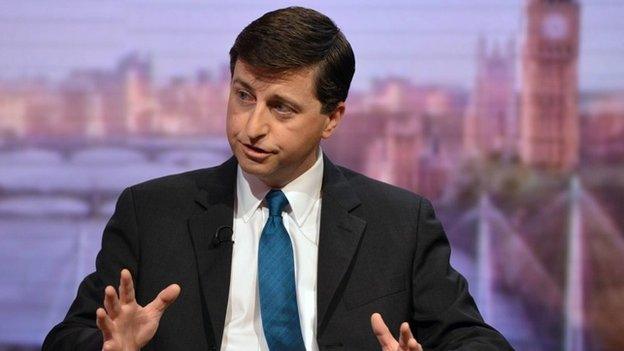Cameron vows to fight on in EU despite Juncker defeat
- Published
David Cameron: "This is a bad day for Europe"
David Cameron has insisted his failure to stop the nomination of Jean-Claude Juncker for the EU's top job is not his "last stand" in Europe.
The UK prime minister admitted it would make securing the reforms he wants harder but he vowed: "I am not going to back down."
EU leaders voted 26-2 to reject Mr Cameron's plea to prevent Mr Juncker becoming European Commission president.
Labour said it had been a "humiliating defeat" for a "toxic" prime minister.
Mr Cameron said the selection of Mr Juncker, whom he regards as an outdated Brussels insider committed to closer political union, was "a bad day for Europe".
The prime minister needs to convince his fellow EU leaders to allow Britain to take powers back from Brussels if he is to make good on his pledge to hold a referendum on Britain's membership of the 28-nation bloc.
'Tough fight'
But he hit back at claims the defeat over Mr Juncker leaves him isolated and his reform plans in tatters, telling reporters: "This is an important stand but it is far from being the last stand.
"My colleagues on the European Council know that I am deadly serious about EU reform - but I keep my word that, if I say I am not going to back down, I won't.
"This is going to be a long, tough fight, and frankly sometimes you have to be ready to lose a battle in order to win a war."
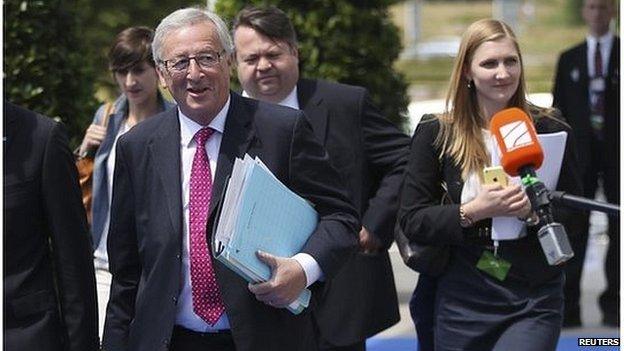
Jean-Claude Juncker has been a central figure in European politics for more than 20 years
The UK and Hungary were the only two countries to oppose the former Luxembourg leader in an unprecedented vote on whether he should be nominated for the EU's top job.
Mr Juncker, who must be endorsed by the European Parliament before taking the role, was the preferred candidate of the European People's Party (EPP), which is the largest group in the European Parliament.
But Mr Cameron has argued that it should be elected leaders of EU member states, not the Parliament, who make the decision on who heads the EU's executive body and this should be done on the basis of a consensus.
'Career insider'
By opposing Mr Juncker, Mr Cameron said he had been standing up for an important principle on who made the key decisions in Europe, and he felt "totally comfortable" about his actions.
He said he respected the decision of his fellow leaders but he believed Mr Juncker was the wrong man for the job and the process by which he was chosen would "undermine" the power of national parliaments.
"For a Europe crying out for reform, we have gone for a career insider," he told journalists.
Britain's opposition Labour Party - which backed Mr Cameron in his opposition to Mr Juncker's candidacy - blamed the prime minister's poor diplomacy and inability to build alliances for his "humiliating defeat".
Labour leader Ed Miliband said: "After weeks of bluster and spin from David Cameron this represents a complete humiliation.
"He was supposed to be building alliances but instead he's been burning bridges. That's why he's failed to deliver and it's the British national interest that loses out as a result of this decision."
The UK Independence Party, which wants Britain to leave the EU, joined the attack, saying the outcome represented "game, set and match to Brussels".
Its leader Nigel Farage said: "David Cameron's response to Juncker's appointment shows that he is a loser who has learned nothing.
"If he had kept his cast-iron guarantee of a referendum on the Lisbon treaty he would not be in this parlous situation."
Miliband predicts "total failure and utter humiliation" for Cameron
But former Conservative minister Bernard Jenkin said Mr Cameron had "demonstrated that he is going to be a very tough negotiator" when it came to reform talks.
"He's not going to be a pushover. And that will have an effect. That will strengthen his credibility with our European partners."
Former Cabinet minister John Redwood said it was not a worry if Mr Cameron was isolated as it was a "reminder" of the UK's fundamental differences with the rest of Europe.
"To those who say Mr Cameron should not have sought to block Mr Juncker because he could not win, I say you are wrong," he wrote on his blog., external
"This episode has reminded all in the UK that the EU is not 'coming our way'."
Edward McMillan-Scott, a former Tory MEP who defected to the Lib Dems in 2010, said Mr Cameron's decision in 2009 to pull the Conservatives out of the EPP, which includes Germany's centre-right Christian Democrats, had rebounded on him.
"David Cameron burnt his boats by leaving the mainstream Christian Democrat, conservative group in the European Parliament, the party of Angela Merkel," he told the BBC News Channel.
"The consequence is that he has no real friends. He is not part of any network in Europe any more. Therefore, it is all telephone diplomacy and it has not worked."
The SNP said that "it could do business" with Mr Juncker.
- Published27 June 2014
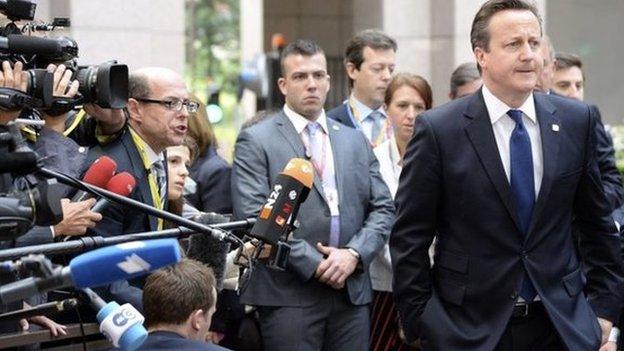
- Published27 June 2014
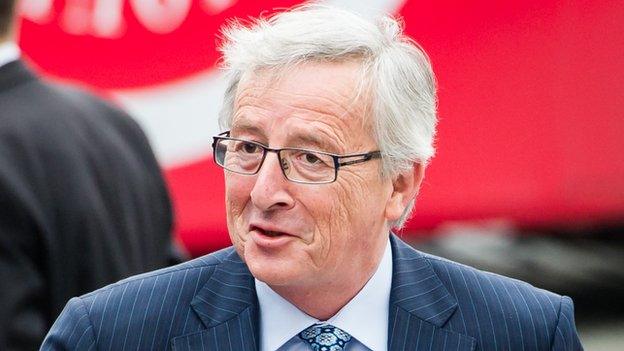
- Published26 June 2014
- Published15 July 2014
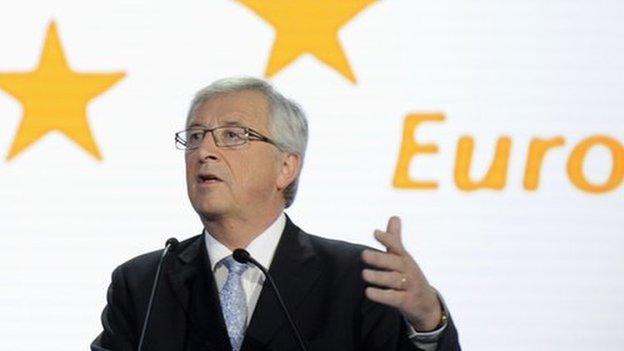
- Published24 June 2014
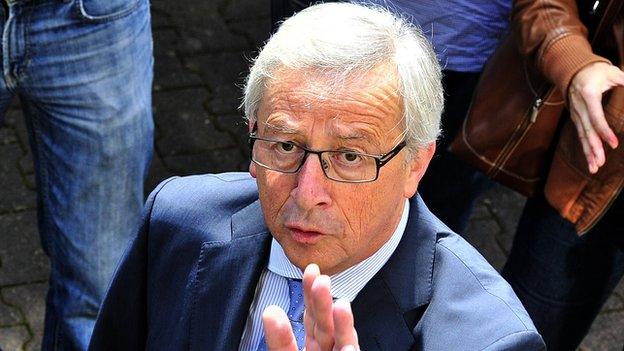
- Published26 June 2014
